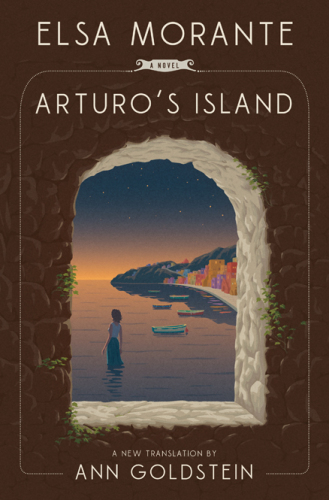
Arturo's Island
A Novel
- اطلاعات
- نقد و بررسی
- دیدگاه کاربران
نقد و بررسی

October 22, 2018
In this translation of Morante’s arresting, febrile tale of abjection and adoration, originally published in 1957, Goldstein captures the blustery voice of an adolescent boy on Procida, an island off the coast of Naples, in the years before WWII. Accustomed to “absolute solitude,” motherless Arturo lives in a dilapidated former monastery at a far remove from Procida’s “surly, taciturn” inhabitants. He abandons himself to books and rambles while awaiting his vagabond father, whom he deifies, to return from his frequent journeys. A penitentiary looms on the island’s cliffs, underscoring the imprisoning spell Procida casts on the swaggering protagonist. Arturo is obsessed with heroism and honor, and possesses a haughty disdain for women, but at his core, he is a vulnerable creature governed by half-understood yearnings and a boiling romanticism. The arrival of a stepmother, a devout 16-year-old his father brings back from Naples and one of this often brutal work’s most touching figures, inspires maternal and erotic longings, jealousy, and revulsion. The novel’s relationships are usually triangular, acute rivalries marked by “marvellous hateful attractions” and abrupt Dostoyevskian shifts from veneration to malice. Morante’s style is well-suited to the adolescent narrator who, marooned on an island, experiences particularly intense bouts of enchantment and disillusionment, making for a captivating novel.

November 15, 2018
A postwar novel about a boy, his father, and their isolated world.Arturo, a young boy, grows up on the island of Procida alone. His mysterious father comes and goes at will. Arturo's mother died in childbirth, and, because their home's previous inhabitant hated women and, so the story goes, left a curse on the rambling, disintegrating structure, they've been unable to hire any women to cook, to clean, or to raise Arturo. So Arturo spends his time alone, rambling along the beach and reading books about the glories of adventure and war. More than anything, Arturo worships his father, a cold, scornful, and often cruel man. When Arturo is 14, his father brings home a young bride, Nunziata, a plain girl only a few years older than Arturo, who grew up poor in nearby Naples. Then he takes off, leaving Arturo and Nunziata alone together for long stretches of time. Morante (1912-1985; Aracoeli, 1984, etc.), once considered the premier Italian writer of her generation, first published this novel in 1957, and it won her the Premio Strega, a major Italian literary prize. This lovely new translation by Goldstein, known for her work on Elena Ferrante and Primo Levi, will hopefully go a long way toward re-establishing Morante's reputation among English-speaking readers. It's a magnificent novel, breathtaking in its psychological acuity. Like Don Quixote and Emma Bovary before him, Arturo has formed his romantic views of life from books. His maturation--and accompanying disappointments, even betrayals--is deeply painful. So are the complicated relationships depicted here: between Arturo and his father, Nunziata and her husband, and Nunziata and Arturo. But there are moments, too, of striking beauty. Arturo's early ramblings on the island have an unearthly quality, as ethereal as the later sections are grounded and precise. Morante's style might seem old-fashioned, at first, to contemporary readers, but they'd do well to overcome that initial impression. The book is brimful with insight and with beauty.By turns devastating and otherworldly, Morante's novel is a classic, and Goldstein's new translation should return to it the attention it deserves.
COPYRIGHT(2018) Kirkus Reviews, ALL RIGHTS RESERVED.




دیدگاه کاربران